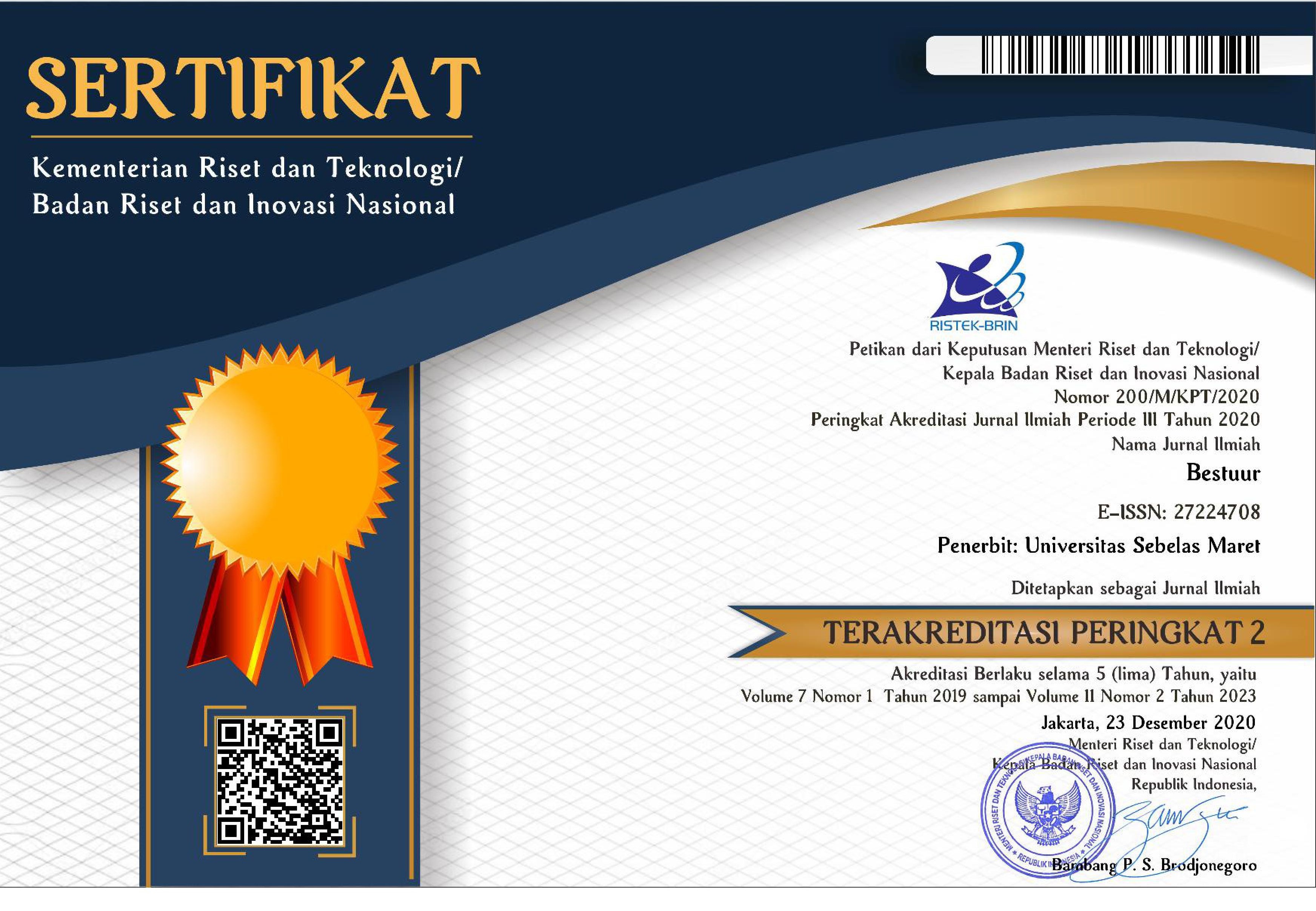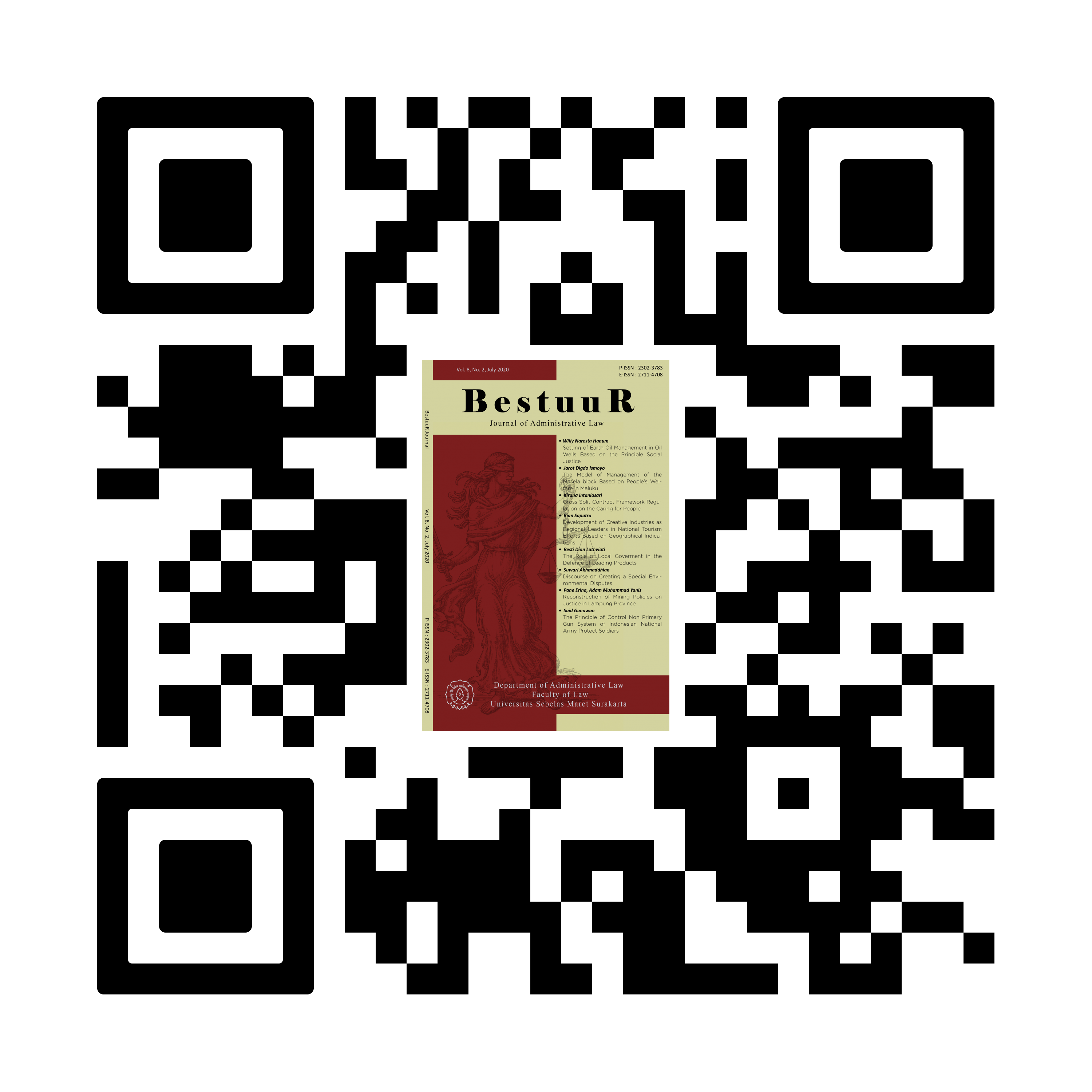Discourse on Creating a Special Environmental Court in Indonesia to Resolve Environmental Disputes
Abstract
The purpose of this study is to determine the regulation of laws and regulations regarding environmental justice in Indonesia and how the concept of building environmental justice in the justice system in Indonesia. This research can be useful both practically and theoretically, practically. The research method used by researchers is the evaluative analysis method, which is a method of gathering and presenting data obtained to analyze the actual situation and then rational analysis is carried out based on juridical references through library research. The results of the research Regulations on the environment are already available namely Law Number 32 of 2009 concerning Environmental Protection and Management and building an environmental justice system starting from improving human resources namely the Supreme Court by consistently educating and training judges with knowledge of aspects of environmental law life that will later handle environmental cases; The Supreme Court makes a special assembly that handles environmental cases; The Supreme Court creates a special chamber that is integrated with the general court that handles environmental cases; The government is amending the 1945 Constitution specifically Article 24 by adding the judicial environment to the environmental court. The conclusion of the legislation is already available and must be used as well as possible and amend the laws and regulations so that bias can be created specifically for environmental justice.
Keywords: Building; Environmental; Justice System.
Full Text:
PDFReferences
Adi Sulistiyono, 2006, Krisis Lembaga Peradilan di Indonesia, Surakarta : UNS Press.
Ayu Dian Pratiwi, Pius Triwahyudi, “Jaminan Perlindungan yang Berkeadilan bagi Tenaga Kerja Difabel Akibat Kecelakaan Kerja”, Jurnal Bestuur, Vol 7, No 2 (2019).
C.F.G. Sunaryati Hartono, 1991, Politik Hukum Menuju Satu Sistem Hukum Nasional, Bandung: Alumni.
Eman Suparman, 2016, Sistem Peradilan di Indonesia Bahan Perkuliahan Program Doktor UNS, Surakarta.
Febry Wulandari, Waluyo Waluyo, “Efektivitas Pemanfaatan Dana bagi Hasil Cukai Hasil Tembakau dalam Bidang Kesehatan di Kota Surakarta Tahun 2018” Jurnal Bestuur, Vol 7, No 1 (2019).
I Gusti Ayu Ketut Rachmi Handayani, Lego Karjoko, Abdul Kadir Jaelani, “Model Pelaksanaan Putusan Mahkamah Konstitusi yang Eksekutabilitas Dalam Pengujian Peraturan Perundang-Undangan di Indonesia”, Jurnal Bestuur, Vol 7, No 1 (2019).
Kartono, 2009, Penegakan Hukum Lingkungan Administratif Dalam Undang-Undang Perlindungan dan Pengelolaan Lingkungan Hidup, Jurnal Dinamika Hukum, Vol.09 No. 3, Purwekerto : FH UNSOED.
Lawrence M. Friedman, 1984, American Law: An invalueable guide to the many faces of the law, and how it affects our daily lives, New York: W.W. Norton & Company.
Lego Karjoko , Zaidah Nur Rosidah I Gusti Ayu Ketut Rahmi Handayani. 2019. Refleksi Paradigma Ilmu Pengetahuan Bagi Pembangunan Hukum Pengadaan Tanah. Jurnal Bestuur Vol.VII, Issue.1, Agustus, 2019.1-14.
Liana Endah Susanti, “Economic Law Creation Beautiful Global Indonesia” Jurnal Bestuur, Vol 7, No 1 (2019).
Lili Rasjidi, 1991, Filsafat Hukum Apakah Hukum Itu?, Bandung: Remaja Rosdakarya.
Martin Roestamy, “Model Land Supply for Land Bank to House Application”, Jurnal Bestuur, Volume 8, No. 1 (2020).
Max Weber dalam A.A.G. Peters dan Koesriani Siswosoebroto, 1988, Hukum dan Perkembangan Sosial (Buku I), Jakarta: Sinar Harapan.
Mochtar Kusumaatmadja di dalam Otje Salman dan Eddy Damian, 2013, Konsep-Konsep Hukum dalam Pembangunan cet.4, Bandung: Alumni.
Nana Sudiana dan Hasmana Soewandita, 2007, Pola Konservasi Sumber Daya Air di Daerah Aliran Sungai Siak, Jurnal Alami Vol. 12 Nomor 1.
Najella Zubaidi, Regy Gusti Pratama, Sholahuddin Al-Fatih, “Legal Perspective on Effectiveness of Pre-Work Cards for Indonesian People”, Jurnal Bestuur, Volume 8, No. 1 (2020).
Nurfaika Ishak, Rahmad Ramadhan Hasibuan, Tri Suhendra Arbani, “Bureaucratic and Political Collaboration Towards a Good Governance System”, Jurnal Bestuur, Volume 8, No. 1 (2020).
Roeslan Saleh, 1979, Penjabaran Pancasila dan UUD 1945 Dalam Perundang-undangan, Jakarta: Bina Aksara.
Rudy Iskandar Ichlas, “Questioning the Independence of Media Coverage in the 2019 Elections”, Jurnal Bestuur, Volume 8, No. 1 (2020).
Satjipto Rahardjo, 2009, Penegakan Hukum; Suatu Tinjauan Sosiologis ,Yogyakarta: Genta Publishing.
Siti Kotijah, 2010, Implementasi Prinsip-prinsip Kehutanan dalam Rangka Konservasi Kehutanan: studi kasus di Jawa Timur, Jurnal Magister Hukum, Vol. 1 Nomor 2, Surabaya : Program Studi Magister Ilmu Hukum, Universitas Wisnuwardhana.
Soerjono Soekanto, 1984, Pengantar Penelitian Hukum.cet.2007, Jakarta : UI Press.
_______________, 2008, Faktor-Faktor yang Mempengaruhi Penegakan Hukum, Jakarta: Raja Grafindo Persada.
Triwanto Triwanto, Esti Aryani, “The Urgency of Granting Authority to Assess Corruption Justice Collaborators”, Jurnal Bestuur, Volume 8, No. 1 (2020).
Tommy Leonard, 2016, Pembaharuan Sanksi Pidana Berdasarkan Falsafah Pancasila dan Sistem Hukum Pidana di Indonesia, Jurnal Yutisia, Edisi 95, Mei-Agustus 2016, FH UNS, Surakarta.
Zaidah Nur Rosidah, “Coherence of the Rules of Sharia Against Pancasila”, Jurnal Bestuur, Volume 8, No. 1 (2020).
DOI: https://doi.org/10.20961/bestuur.v8i2.42774
Refbacks
- There are currently no refbacks.
Copyright (c) 2020 Suwari Akhmaddhian
License URL: https://creativecommons.org/licenses/by/4.0/
|











_CROSREF.jpg)




